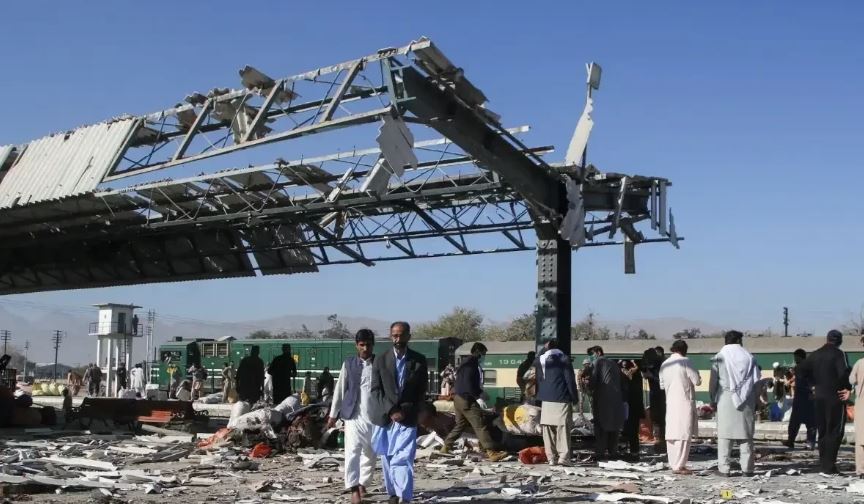
The recent attack in Quetta that took at least 26 lives has once again spotlighted the ever-present threat of terrorism and the profound grief it brings to affected nations. In a tragic week for Pakistan, condolences and condemnations poured in from leaders worldwide, underscoring the urgency of counter-terrorism cooperation. While Pakistan has long been in the crosshairs of extremist violence, the international reaction to this recent tragedy has reinforced the global community’s recognition of terrorism as a universal threat demanding united action.
The Importance of Global Condemnation
Condemnations from leaders such as Russia’s President Vladimir Putin, the UN Secretary-General Antonio Guterres, and Malaysia’s Prime Minister Anwar Ibrahim go beyond words of sympathy—they represent a united front against terrorism. By taking a strong public stance, these leaders send a clear message: terror attacks not only affect the immediate victims but also threaten global peace and stability. This solidarity serves as a potent reminder that the battle against extremism is not Pakistan’s alone. Just as countries across the world have suffered from acts of terror, Pakistan’s struggle against this menace is part of a larger, collective effort.
China’s Support: A Pillar in Pakistan’s Counter-Terrorism Strategy
Among Pakistan’s allies, China stands out as an unwavering supporter of Pakistan’s counter-terrorism efforts. The recent incident in Karachi, where two Chinese nationals were injured, underscores the mutual stakes both countries have in combating extremism. China’s Foreign Ministry spokesperson Lin Jian reaffirmed the commitment to support Pakistan, a sign of the deep-rooted China-Pakistan relationship. With the China-Pakistan Economic Corridor (CPEC) and other major projects underway, counter-terrorism cooperation has become essential not only for the safety of Chinese nationals in Pakistan but also for ensuring the stability of significant investments that can transform Pakistan’s economic landscape.
Russia’s Stand: A Long-Standing Ally
President Putin’s letter condemning the Quetta attack was a poignant reminder of Russia’s support for Pakistan in counter-terrorism efforts. His promise of cooperation echoes a shared history of combatting extremism and protecting sovereign nations from external and internal threats. Russia’s dedication to combating terrorism has also been shaped by its experiences in handling insurgency and extremism, which aligns closely with Pakistan’s struggles. This alliance presents an opportunity for both countries to enhance intelligence-sharing, strengthen military coordination, and take a firm stance against groups aiming to destabilize regional peace.
International Responsibility in Addressing Terrorism
Terrorism, by nature, transcends national borders, and no country is immune. This attack in Quetta reminds us that terrorism affects global security and calls for sustained international support. Leaders and countries from different regions have shown that the battle against extremism requires not only condemning the act but also providing material and strategic support. As a global issue, terrorism should compel stronger international institutions and cooperation frameworks, enabling countries like Pakistan to safeguard their citizens more effectively.
An Opportunity for Enhanced Regional Cooperation
The regional impact of terrorism is particularly significant in South Asia. Countries like Iran and Sri Lanka, which also condemned the attack, are all too familiar with the dangers of terrorism. Iran, which shares a border with Pakistan, emphasized a principled stance against terrorism, highlighting the need for regional solidarity. Similarly, Sri Lanka, a nation that endured decades of separatist terrorism, expressed support for Pakistan’s anti-terrorism stance. Both nations have a vested interest in Pakistan’s stability, as unrest in one country inevitably influences the region’s entire security dynamics. Such solidarity offers a pathway for enhancing counter-terrorism cooperation and intelligence-sharing among neighboring states, with the potential to reduce the risk of cross-border terrorist activities.
Conclusion: Towards a Unified Global Stance Against Terrorism
The collective outrage expressed by global leaders serves as a powerful deterrent against the forces that seek to destabilize Pakistan and, by extension, the world. The ongoing fight against terrorism is complex, but it is one that no nation can face alone. Pakistan’s resilience, backed by international allies, illustrates the hope that together, countries can pave the way toward a world where terrorism no longer dictates the lives of innocent civilians. This tragedy in Quetta, though heartbreaking, may yet strengthen the resolve of nations around the world to work together against the common enemy of terror.
